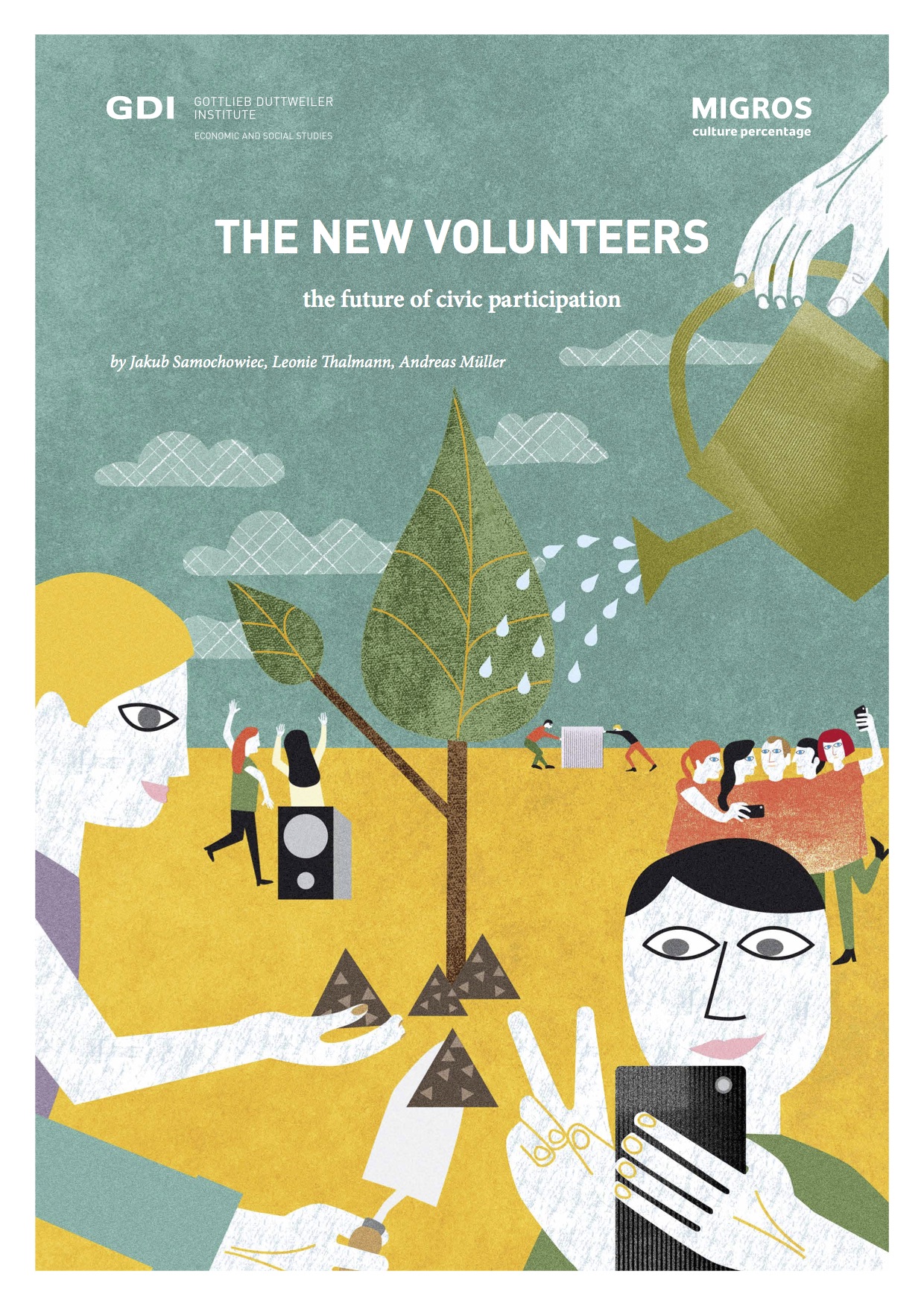Studies
People who volunteer do better during the pandemic
A representative study on the effects of Corona
MOSAiCH is a representative survey of the Swiss population conducted during the pandemic. Over the course of three waves, respondents’ life situations were recorded alongside their answers to questions relating to well-being and trust. The second and third survey waves included questions on volunteering. These questions have now been evaluated on behalf of the Migros Culture Percentage and are available in the form of a report.
The conclusion: People who volunteer have weathered the pandemic better in several ways than those who do not do any volunteering. Although not every person who volunteers is more trusting of political and social institutions, they are more satisfied with their lives, receive more social support, are less socially isolated and suffer fewer bouts of depression.
The new volunteers

The future of civic participation
In our multi-option society, traditional volunteer work is becoming increasingly unpopular. What effect does this have on the role of civil society? The study ‘The new volunteers’, commissioned by the Migros Culture Percentage, addresses this question and formulates a framework for the civic engagement of the future.
The study shows that those who volunteer in future will want:
- To get involved quickly in specific projects
- To no longer simply provide free labour, but contribute ideas and have their say
- To deal with and develop projects non-hierarchically
A prerequisite for any civic engagement is knowing where and how you can actually contribute. Digital platforms are playing an increasingly large role here as a method of connection and exchange. Web 2.0 is itself becoming a digital site of civic participation, for example through Wikipedia.
The division between those helping and those being helped no longer applies to the new form of volunteering. The focus is now on tackling problems together rather than working through predetermined tasks – the new volunteers are participatory and potential-oriented.
Published by: Gottlieb Duttweiler Institut, commissioned by Migros Culture Percentage, Cornelia Hürzeler
Authors: Jakub Samochowiec, Leonie Thalmann, Andreas Müller
Languages: German, French, English
86 pages, softcover, Rüschlikon, 2018







